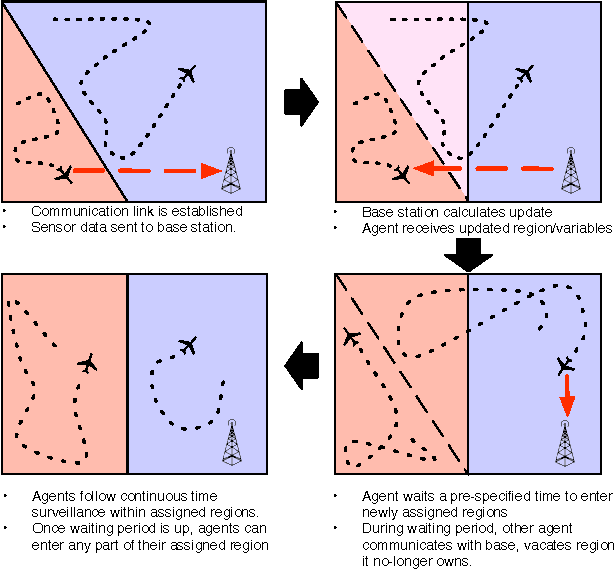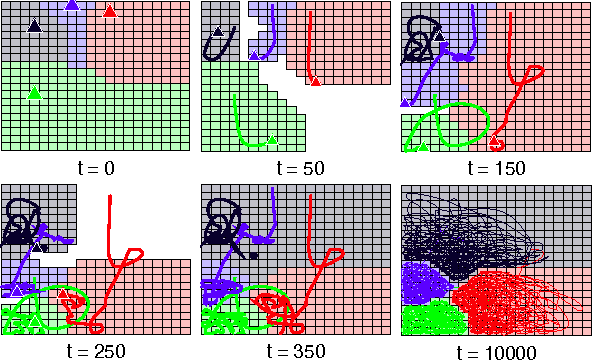Asynchronous and Dynamic Coverage Control Scheme for Persistent Surveillance Missions
Paper and Code
Feb 15, 2017



A decomposition-based coverage control scheme is proposed for multi-agent, persistent surveillance missions operating in a communication-constrained, dynamic environment. The proposed approach decouples high-level task assignment from low-level motion planning in a modular framework. Coverage assignments and surveillance parameters are managed by a central base station, and transmitted to mobile agents via unplanned and asynchronous exchanges. Coverage updates promote load balancing, while maintaining geometric and temporal characteristics that allow effective pairing with generic path planners. Namely, the proposed scheme guarantees that (i) coverage regions are connected and collectively cover the environment, (ii) subregions may only go uncovered for bounded periods of time, (iii) collisions (or sensing overlaps) are inherently avoided, and (iv) under static event likelihoods, the collective coverage regions converge to a Pareto-optimal configuration. This management scheme is then paired with a generic path planner satisfying loose assumptions. The scheme is illustrated through simulated surveillance missions.
 Add to Chrome
Add to Chrome Add to Firefox
Add to Firefox Add to Edge
Add to Edge